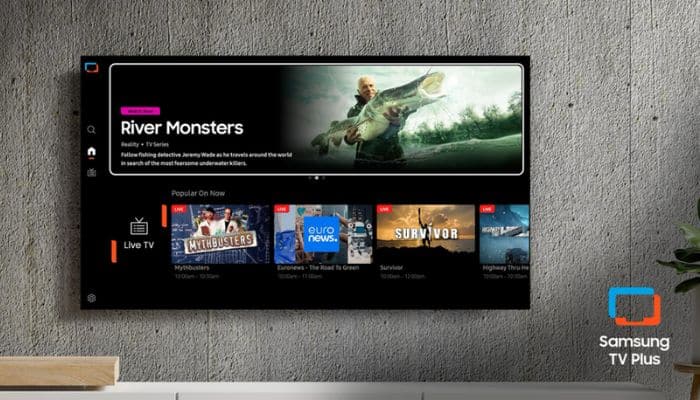When it comes to hyperlocalised advertising for consumers, retail media networks (RMNs) are one of those channels that many marketers are slowly adopting as part of their marketing strategies to target consumers who already have the buying mindset.
Unlike other forms of digital advertising–such as social media marketing–retail media ads are shown to people right when they’re ready to buy. And brands love this because it means they’re reaching people who are already in a buying mindset.
Now, for brands and advertisers, RMNs are becoming a must-have, not just a nice-to-have. They’re investing a lot into them because they get access to super-targeted audiences without having to rely on third-party cookies or worry about data privacy issues. The question is: how can marketers in Southeast Asia make the most out of RMNs for their marketing strategies?
In our latest What’s NEXT in Marketing interview, we recently sat down with Ken Mandel, regional managing director and head of GrabAds and enterprise at Grab to discuss the unique capabilities of RMNs and what benefits of using them are critical to success in today’s complex digital advertising landscape.
Increased usage of rich first-party data
For Ken, the rise of RMNs in Southeast Asia is a strategic response to evolving consumer expectations and industry challenges by brands and advertisers. Moreover, the industry increasingly recognise RMNs’ unique capabilities, which offer several benefits critical to success in today’s complex digital advertising landscape–including its rich first-party data.
“With consumers today becoming increasingly data privacy-conscious, the limitations of traditional digital advertising channels like Search and Social are becoming increasingly apparent regarding data. RMNs offer a paradigm shift by leveraging rich first-party data obtained directly from user interactions within the platform ecosystem,” he said.
Another key capability for RMNs is measurement, and is especially relevant for marketers amidst a continued trend of shrinking ad budgets.
“RMNs can ‘close the loop’ from consumers viewing an ad to a potential sales conversion, giving brands the ability to measure the precise impact of an ad campaign. In comparison, measuring returns on ad spend on other channels like social networks or influencer campaigns, can be inaccurate, because they occur in different contexts and across different platforms.
With these capabilities in mind, Ken notes that these capabilities are especially important in Southeast Asia where consumers prioritise seamless, convenient shopping experiences. Citing their recent research alongside Kantar, he notes that around 61% of Southeast Asians surveyed said it was very important to have products or services that can anticipate their needs, higher than the global figure (52%).
As such, RMNs are well-positioned to continue growing in adoption and prominence in the region in the next few years.
“With first-party data and the ability to ‘close the loop’, RMNs can help brands and advertisers serve products and services with precision in the right context and time, delivering effective campaigns that are also measurable,” he added.
Continued traction despite being nascent
One of the biggest factors contributing to the success of RMNs in Southeast Asia is the region’s digitally-savvy population primed for speed and convenience. With smartphones as their primary device, consumers seek quick, streamlined shopping experiences that can promptly deliver products right into their hands.
Citing their study with Kantar once again, he notes that 2 in 3 Southeast Asians prioritise having on-demand access to products and services, in which superapp RMNs in particular are able to deliver through an integrated ecosystem of services covering all purchasing stages – from discovery right through to last-mile delivery.
Another factor contributing to RMN success in SEA is shopping being transformed into a hybrid experience, noting that around 79% of surveyed Southeast Asians utilised online and offline retail channels simultaneously.
“This is where superapp RMNs in particular shine – whether through digital in-app promotions or out-of-home assets like product sampling or car fleet wraps – superapp RMNs allow brands to design creative full-funnel campaigns that combine online and offline touchpoints across the consumer’s entire buying journey,” Ken explained.
RMNs–despite significantly gaining traction in Southeast Asia–remain a relatively nascent domain that advertisers are still experimenting with. Nonetheless, Ken explains that year-on-year growth in total RMN ad spend in the region is forecasted to increase from 8% in 2024 to 11% in 2030, a widespread shift towards precision, relevance, effectiveness, and consumer-centric strategies in digital advertising.
“This will bring forth more data-driven campaigns that will not only arm brands with the ability to reach the right audience at the right time, but also unlock infinite possibilities for omnichannel consumer engagement throughout their daily lives,” he said.
Ken also added that looking ahead, he believes that retail is just the start, and that the industry is already seeing vertical media networks emerging across many sectors, including travel, hospitality, and health and wellness.
“No matter the vertical, capitalising on this vital channel ultimately requires brands to focus on consumer-centric media strategies and choose the right partners equipped with essential RMN capabilities – first-party data, a substantial audience, and the ability to ‘close the loop’ – to create high-impact campaigns that make the best of RMNs,” he noted.
RMN strategy means going full-funnel
To make the most of their RMN investments, Ken advises brands to be timely and relevant on said investments by leveraging insights from the rich first-party data obtained directly from user interactions within the platform ecosystem. Said invaluable data enables brands to deliver highly targeted and personalised advertising experiences that resonate with audiences at critical moments.
“Beyond elevating the relevance of the brand’s product or service, this will also position the brand more favourably as functional, amplifying the campaign’s impact on long-term brand building,” Ken stated.
He also added that brands should go full-funnel with their RMN strategy, meaning brands should harness the omnichannel nature of RMNs to extend their reach beyond digital, opening up new opportunities for broader reach through enhanced targeting capabilities and diverse ad formats.
“This also augments measurement, where the online-to-offline ecosystem of RMNs allows brands to capture more comprehensive metrics across the ecosystem – whether that’s ad clicks, product samples received or purchases in-store – for better campaign optimisation,” he said.
While all of the aforementioned strategies revolve around the technicalities of implementing RMNs, Ken also stresses the importance of creativity, which also plays a crucial role in helping brands stand out in a crowded advertising landscape. For him, in order to surprise and delight consumers, brands have to craft unique, immersive experiences that surpass communicating brand messages on a screen.
A sample of this is GrabAds’ work with Wonda Coffee which transformed consumers’ car rides into complete sensorial experiences. The campaign featured 3D coffee cans atop the Grab cars, passengers were greeted by the Wonda jingle and the aroma of roasted coffee beans within the cars, while an in-car QR code offered a free can of coffee for sampling.
“RMNs offer a multitude of ad formats, allowing marketers to seamlessly blend online and offline spaces into a unique experience – which is critical for awareness and discovery campaigns to be successful,” Ken stated.
While keeping in mind all of these strategies, he also shares that no two markets are identical when determining the success and effectiveness of RMNs, as unique local contexts play a crucial role in shaping each market’s distinct needs. While the region presents ripe opportunities for RMN players, it is worth noting that not all RMNs are created equal, nor present the right fit for every occasion.
With that in mind, marketers have to consider each platform’s users and whether they align with their brand’s target audience segments.
“Superapp RMNs are ideal for brands seeking full-funnel solutions to reach consumers across their buying journey from discovery to purchase, while social media RMNs are often better suited for awareness campaigns due to their reliance on user-generated content.” Ken further explains.
RMNs’ impact in performance marketing
When asked about the importance and impact in performance marketing, Ken notes that RMNs have mostly been known for their strength in ‘performance marketing’—basically, they are great at driving conversions and getting people to buy right away. But the reality is that RMNs have evolved beyond just being a last-step push.
“Although RMNs are often recognised as a performance channel, they are in fact a full-funnel solution that offers valuable opportunities across every stage, from brand building and discovery at the top to conversion at the bottom of the funnel,” he said.
An example of this in motion was during GrabAds’ work with fast-food chain Lotteria in Vietnam, which delivered a 9.3x increase in sales for every dollar spent and brought in over 8,000 new customers. In the campaign, by targeting new and existing customers across every stage of the purchase journey with a mix of video, banner, search, in-transit and other ad formats, the campaign drove a 13% uplift in ad recall and 8% uplift in purchase intent.
“This shows that RMNs can achieve dual objectives of brand building and performance within a single campaign,” he said.
In order to unlock the power of full-funnel in RMNs, Ken suggest brands to ask themselves the following questions:
- How is your brand leveraging the diverse online and offline ad formats in creative strategies to better drive brand messaging traction?
- How is your brand tapping into real-world transaction data to identify the right consumer segments to reach?
- How is your brand using the online and offline metrics tracked by the RMN platform to create a unified measurement plan that allows you to discern return on investment from campaigns?
“These questions, once answered, will help brands deliver greater impact across the funnel with campaigns that go beyond just performance,” he stated.
****
As big retailers and superapps find themselves sitting on a mountain of data, a majority of them are now using it to help brands get in front of people right when it matters most. With that, the impact RMNs are having is huge, and they’re only becoming more essential for brands that want to connect with shoppers in a smarter, more direct way. Retail media isn’t just a trend; it’s becoming a core part of how we shop and how brands reach us.










